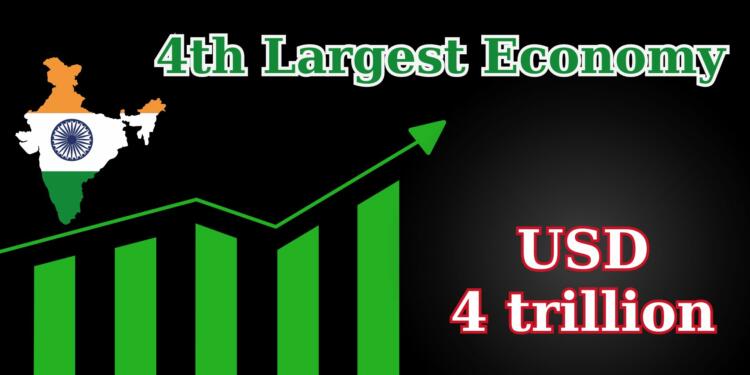In a remarkable turn of events, India’s stock market is on a relentless upward trajectory, outpacing global counterparts and positioning itself to become the world’s third-largest economy. The Chinese economic slowdown post-pandemic has prompted international fund managers to redirect their investments to India, fostering robust growth in the country’s economy. This surge is not just a numerical triumph but a testament to India’s economic fortitude. With its market cap now surpassing Hong Kong’s, India is emerging as a key player in the international financial arena. This article explores the factors propelling India’s economic boom, the decline in China’s appeal, and the potential for India to secure the coveted position as the third-largest global economy.
India’s Remarkable Stock Market Ascent
Since March 2020, India’s benchmark index, the Sensex, has surged two-and-half times, showcasing a remarkable outperformance compared to the Hang Seng index, which has seen a decline of 33%. This outstanding performance is attributed to the strong growth of India’s economy and the listing of numerous companies on both the BSE and NSE. As a result, India’s market cap has now surpassed Hong Kong’s, reaching USD 4.33 trillion, underlining the resilience and dynamism of India’s economic landscape.
India’s Market Cap Milestone
India achieved a historic milestone on December 5, 2023, as its stock market capitalization crossed USD 4 trillion for the first time. This phenomenal growth, with half of it realized in the past four years, signifies a substantial leap forward for the Indian economy. Currently, India stands as the fourth-largest equity market globally, with only the US, China, and Japan ahead in terms of market capitalization. The cumulative gains of 17-18% in 2023 for Sensex and Nifty reflect the stellar performance of Indian stocks in the past year.
Key Factors Driving India’s Economic Boom
India’s success story in the stock market is attributed to a combination of factors. A stable political environment, robust corporate earnings, and a consumption-driven economy have attracted global capital. Foreign portfolio investors (FPIs) have played a crucial role in propelling Indian stocks to all-time highs, reaffirming investor confidence. This, coupled with a firm GDP growth forecast, manageable inflation levels, and political stability, positions India as the fastest-growing major economy globally.
Hong Kong’s Downturn
China’s appeal as a global growth engine has waned, leading to a historic downturn in Hong Kong’s stock market. Stringent anti-COVID-19 measures, regulatory crackdowns, a property-sector crisis, and geopolitical tensions have eroded China’s attractiveness to investors. Consequently, Chinese and Hong Kong stocks have collectively lost over $6 trillion in total market value since their 2021 peaks. Hong Kong, once a bustling hub for initial public offerings (IPOs), has seen a decline in new listings amid the turmoil.
Also Read: This report about “How affluent India is going to be” is just mind-numbing
India as an Alternative to China
India’s rise to prominence is further emphasized by its position as an alternative to China. With a stable political setup and a consumption-driven economy, India has become an attractive destination for global investors and companies looking to diversify their portfolios. The growing base of retail investors and strong corporate earnings contribute to India’s viability as a lucrative investment option. The optimism is palpable among financial experts, with Ashish Gupta, CIO at Axis Mutual Fund, expressing confidence in India’s potential for sustained growth.
India’s stock market has not just achieved numerical milestones; it has established itself as a powerhouse in the global economic landscape. Surpassing Hong Kong in market capitalization is a testament to India’s economic resilience, attracting funds and investments even as other economies face challenges. The decline in China’s appeal has played a pivotal role in India’s ascent, with the nation positioning itself as a robust alternative. As India continues to foster a stable political environment, encourage foreign investments, and sustain its economic growth, it is poised to surpass Japan and claim the coveted position as the world’s third-largest economy. The coming years will likely witness India’s continued economic prowess and its emergence as a major player on the global stage.
























